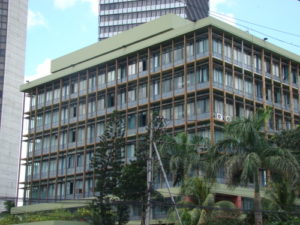Dhaka Times Desk It is feared that the implementation of this new policy will have a negative impact on the economy. Economists believe that both banks and customers will be affected by this.

Quoting economists, a daily has recently said that if this policy is to be implemented, it will have a negative impact on the overall economy apart from the banking sector of the country. The liquidity crisis in the banks will take a dire shape. Businessmen will be in trouble of money. Both the bank and the customer will be affected. This will further increase the amount and rate of defaulted loans. Thousands of successful businessmen will fall under the shadow of default. The sudden imposition of the said policy by the Central Bank on the banks has caused anger among the banks as well as the business community. Because if this policy is implemented, most of the businessmen of the country will be given the title of defaulters. Besides, the liquidity crisis in the banking sector will take a more dire form. The chief executives of commercial banks feel that there is a dire liquidity crisis in the banking sector at present. If this policy is implemented in the current situation of the banking sector, the amount of defaulted loans will increase. As a result, provisions have to be stored at a higher rate. This will greatly reduce the amount of loanable funds of the bank, which will increase the pressure on liquidity. Meanwhile, FBCCI, an organization of top businessmen, has demanded the withdrawal of the mentioned policy of the central bank. On behalf of the organization, it has been said that FBCCI feels that the new rules regarding debt classification, debt rescheduling and down payment by imposing special controls through BRPD circular number-7 and 8 will not be able to keep any business and trade of the country running. by doing FBCCI will demand the withdrawal of this policy in writing to Bangladesh Bank on Wednesday.
BIDS research director Dr. Quoting Zayed Bakht, the report also says that if this policy is to be implemented, chaos may arise between the banking sector and businessmen. He mentioned that Bangladesh has done this mainly according to the conditions of the IMF. It is an expression of restrictive monetary policy. He said, this will have a negative impact on the overall economy. There will be fear of liquidity crisis in banks. Businessmen will be in financial trouble. Business operating expenses will increase. As a result, there will be fear of stoppage of wages and allowances of the workers. This may lead to tension between owners and workers in industrial areas. As a result, investment may decrease further. Overall, those policies of Bangladesh Bank will not be helpful for economic growth.
FBCCI president AK Azad said that due to severe economic recession due to severe debt crisis in OECD countries including Euro zone, Bangladesh's exports to these countries are continuously decreasing. As a result, export-oriented industries are becoming critical. On the other hand, acute energy crisis, strict currency contraction policy, liquidity crisis due to excessive borrowing by the government from the banking system and high interest rates have brought the entire investment system of the country into crisis. On the one hand, new industrialization or investment is not taking place due to tight monetary policy, on the other hand, it is not possible to keep the productive sector functioning according to the existing capacity due to insufficient energy. This is disrupting employment and increasing unemployment. In this situation, along with the existing policy of currency contraction, all industries and trade including export-oriented industries will come to a standstill due to the circular regarding loan classification, rescheduling and down payment announced by Bangladesh Bank by imposing new special controls and the economy of the country will be adversely affected. AK Azad also said that in view of the current international and economic situation of the country, BRPD Circular No. 7 and 8 of Bangladesh Bank should be withdrawn and the relevant previous circulars should be maintained. In this regard, the managing director of a private bank told Jugantar that if the rules that have been in place for a long time are suddenly changed, both the bank and the customers will suffer. This will increase the amount and rate of classified loans. They said that many businessmen have the mentality of paying the loan on time but take six months due to various reasons. In many cases even good entrepreneurs reschedule loans due to business problems. The new policy has made the rules for rescheduling more stringent. If you suddenly follow this rule, the bank will have problems in collecting defaulted loans.
FBCCI advisor Manzoor Ahmed said, as a result of this policy, it will be difficult to find a businessman who will not default on the loan. He mentioned that business has already become risky. Production cost has increased due to shortage of electricity and gas. Many are struggling to pay the salaries of officials and employees. Some are losing the ability to return the money to the bank. In the present situation, the time for repayment of the loan should have been extended. But the opposite has been done. As a result of this policy, it will cause sores on the legs. Many industries will be closed. As a result investment will decrease. Employment will decrease.
Abdus Salam Musherdi, president of Exporters Association of Bangladesh, said that if this policy is implemented, millions of successful businessmen of the country will be scarred by debt default. At this time of international economic recession, the decision of the central bank is a suicidal decision. This will cause instability in the entire economy. He said, in the current situation, it was necessary to extend the time. But the time has been reduced. It will cause loss of business. Investment will decrease. Employment will decrease. As a result, GDP growth will decrease. He said that a letter will be sent to various departments of the government including the Ministry of Finance, Ministry of Commerce, Bangladesh Bank to cancel the decision of Bangladesh Bank. Meanwhile, Association of Bankers Bangladesh (ABB), the organization of chief executives of banks, is reluctant to implement the policy of non-performing loans or classified loans, rescheduling and provisioning. The leaders of the organization will soon meet the governor of Bangladesh Bank and write a letter asking for more time to implement this policy.
It is to be noted that earlier if the expiry date of the loan was passed, the loan was classified as a defaulted loan, according to the new policy, it will be considered as defaulted 3 months earlier than before. As a result, the expiry period for determining the classification of sub-standard, doubtful, bad or bad loans has been reduced from earlier to 3 months. According to the new policy, the loan maturity period between 3 and 6 months is substandard, between 6 and 9 months is doubtful and more than 9 months is said to be classified as bad or loss. The new policy is to be implemented from July 1.
When talking to an official of Dutch-Bangla Bank on mobile phone, he said that Bangladesh Bank has not informed about this yet. So the implementation from July 1 is not yet certain.
Meanwhile, the Deputy Governor of Bangladesh Bank SK Sur Chowdhury highlighted their arguments in this regard and said that this policy has been made to bring transparency and order in the banking sector. It is very realistic. This is a new policy to promote international standards. All over the world loans are classified according to this principle.


